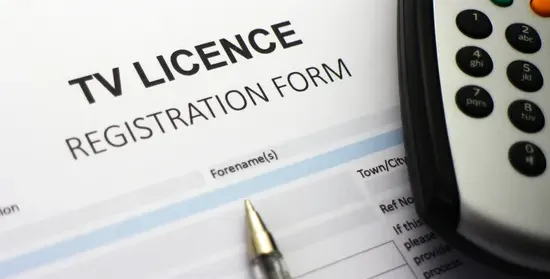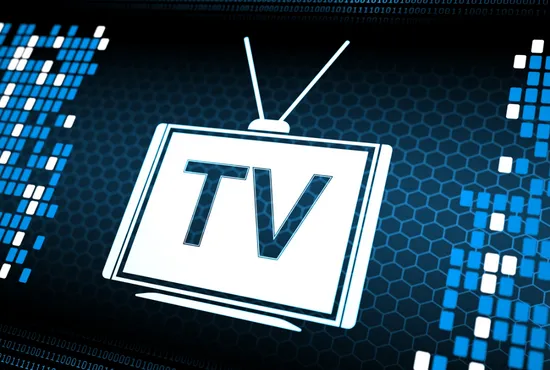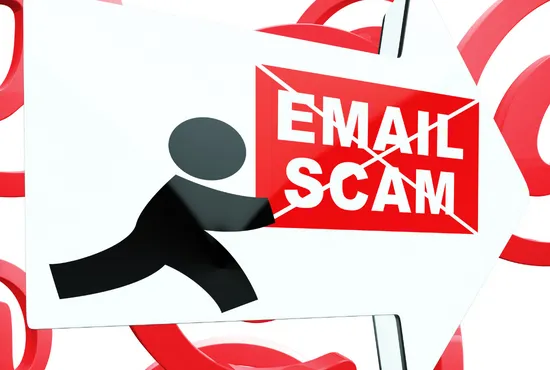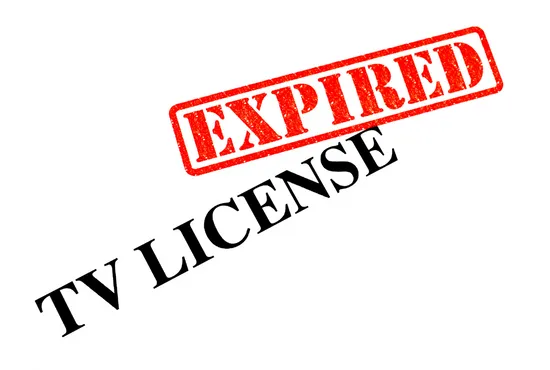
Warning about the TV Licensing Scams
TV License scams are a form of fraud that targets unsuspecting consumers, especially those who own televisions or other devices capable of receiving broadcast signals. These scams involve fraudulent phone calls, emails and text messages intended to deceive individuals into believing they owe money for a non-existent television license or need to renew an existing one. The scammers may also claim that failure to pay will result in legal action from the 'TV Licensing Authority'.
The TV Licensing department is working hard to combat scams that can leave you feeling vulnerable and out of pocket. To help protect yourself, it's important to be aware of the signs of a potential scam and keep your personal details and information safe.
Do you need a TV Licence?

It is important to note that an individual's obligation to obtain a licence is solely determined by whether they are watching live television broadcasts at home - regardless of whether this content is accessed through traditional cable or satellite services, streaming services like Netflix or other more obscure sources.
Types of TV Licensing scams

TV Licence scams can take many forms. Common ones include emails, text messages and phone calls claiming to be from TV Licensing or another legitimate organisation. They may try to trick you into providing personal information such as your bank details or card numbers, or they may ask you to pay an upfront fee for a ‘special offer’ that doesn't exist.
Phishing emails and texts
These are some of the most common and dangerous scams related to TV Licensing. Phishing is a type of fraud in which scammers attempt to acquire sensitive information, such as passwords and credit card details, by disguising themselves as a trustworthy entity in an email or text message. These messages usually include a link that directs victims to malicious websites where they can be asked to provide their personal information.
Scammers may contact you offering "deals" or "discounts" for immediate payment or inform about a cheaper subscription.
Cold calls
Another type of scam are cold calls from individuals pretending to be representatives from TV Licensing. These scammers might claim that you owe money for a license fee you haven't paid or offer special deals just for you. They usually ask for payment over the phone or ask for personal information such as credit card numbers and bank accounts.
Door-to-door scams
Door-to-door salespeople may show up at your home offering special discounts on licenses, claiming they have access to a limited number of licenses or attempting to collect payments that don't actually exist.
No matter what type of scam you encounter, it's important to remain vigilant and do your research before providing any kind of payment or personal information. Unlicensed activities can result in hefty fines and other penalties, so if something seems too good to be true, it's best not to take any chances and report the activity immediately.
How to spot TV Licence scam?

Spotting a TV Licensing scam can be difficult, as scammers often use various tactics to deceive potential victims. It's important to remain vigilant when it comes to unsolicited communications about TV Licensing, especially emails or phone calls that claim you are in breach of the law and need to pay a fee urgently.
- One of the most common tactics scammers use is to mimic official TV Licensing communications. They may include the organisation’s logo in their emails, and often use language that sounds very similar to an official notice from the organisation. As such, it's important to pay close attention to any suspicious messages or calls that you receive and look out for inconsistencies, as well as signs that the message may not be genuine.
-Check the grammar and spelling and the web address. The malicious email may even contain a fake licence number.
- If for some reason TV Licensing needs to send you an email, they will never address you as 'Dear Customer', instead they will use your first and last name.
- Genuine TV Licensing emails are sent from the following address: [email protected] or [email protected]. Before you click on any link check first who sent the message. If TV Licensing ever contacts you by e-mail, it will do so informatively.
- All important information about payments, changes to the terms and conditions or other matters are in your private account and can be accessed by logging in - https://www.tvlicensing.co.uk/cs/update/your-licence/index.app.
TV Licensing payment card customers who make mobile payments via the TVL Pay app may receive emails from [email protected], with the sender’s name displaying as 'TVL Pay'.
- Fake e-mails often ask for urgent payment or tell you that you are due a refund or offer you a cheaper licence or subscription.
- It is also important to remember that TV Licensing does not cold call customers or send emails asking for bank details. If you have received a call or email like this, it is likely to be a scam.
If you have received a suspicious email or phone call about your TV licensing, it is important to double check that the communication is genuine.
If you are unsure whether the message is from TV Licensing or an authorised representative, contact TV licensing team directly via their official channels to verify its authenticity. It's also worth checking the TV Licensing website for any updates or changes in their processes.
What to do to avoid being scammed?

As with any one scam, there are some things you can do to avoid being scammed:
- Check carefully who sent you the email and for what purpose - we have described this in the section above.
- Never give out personal and financial details such as credit card details, account numbers, passwords or PINs over the phone, by mail or online.
- Be suspicious of any unsolicited calls and emails claiming to be from TV Licensing, as these are likely to be fraudsters attempting to access your personal information.
- Always check the caller's credentials before providing any information and make sure that their contact details match those of the official TV Licensing contact details.
- If you have the option, pay by direct debit.
- Always pay for your TV Licence directly with TV Licensing, not with any third party. If you're ever in doubt, contact TV Licensing directly for advice.
-Be wary of websites that offer services such as ‘licence renewals’ or ‘payment plans’, as these are likely to be fraudulent attempts to access your personal information.
Where to report a scam?

If you believe that you are a victim of a TV Licensing scam, it is important to report the incident to your local police or Action Fraud by calling them on 0300 123 2040. Additionally, if you receive unsolicited emails or calls from someone claiming to be from TV Licensing, you can forward them to the organisation at [email protected] so they can investigate further and take action against the perpetrators.
By following these simple steps, you will be better prepared to identify potential TV Licensing scams and protect yourself from becoming a victim. Remember, if something seems too good to be true or you are asked for confidential information, it's likely to be a scam. So stay vigilant and always double-check the source of any communication before responding!
Remember, the only way to legally watch or record live television programmes is by having a valid TV Licence. It's important to stay aware of any potential scams so that you can protect yourself and your finances. And remember, if it doesn't seem right – it probably isn't! Stay vigilant and don’t get scammed.